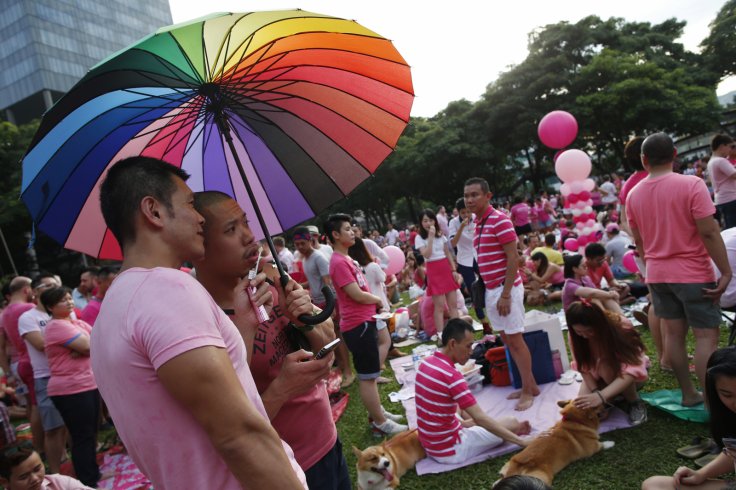
After the historic judgement by Supreme Court of India, which decriminalised consensual sex between adults regardless of their gender by partially scrapping Section 377 of the Indian Penal Code, Singaporean DJ Johnson Ong Ming, filed a court challenge against Singapore's gay sex law on Monday, September 10. On the other hand, The National Council of Churches of Singapore (NCCS) said they do not support repeal of 377A.
The NCCS said in a statement on Thursday, September 13 that it does not support the repeal of Section 377A of the Singapore Penal Code. In addition, they said it believes that homosexual lifestyle not only harms an individual but also affects families as well as the society.
NCCS, which represents about 200 churches, said that it agrees with the 2014 ruling of Singapore's apex court that Section 377A is constitutional and they supports the decision of the government. While talking about what bible says, they added that the holy book "clearly and categorically prohibits homosexual behaviour because it is a perversion of the way in which God has ordered human sexual relationships".
The council also said that the changes in Section 377A would lead to "undesirable moral and social consequences, a slippery slope as seen in some countries taking this step."
Even though, Section 377A criminalises sex between men in Singapore, after the historic judgement by Supreme Court of India, veteran Singapore diplomat and international lawyer Tommy Koh has called on the gay community to challenge the law in Singapore.
Soon after that, the 43-year-old Ong filed the case on Monday. As per the court documents, the case argues that the Singaporean same-sex law is inconsistent with three articles in the Constitution concerning liberty of a person and equal protection.
Section 377A of the Penal Code criminalises sexual behaviour between consenting adult males, even in private. The law states that "Any male person who, in public or private, commits, or abets the commission of, or procures or attempts to procure the commission by any male person of, any act of gross indecency with another male person, shall be punished with imprisonment for a term which may extend to 2 years."
DJ Ong refers to the first of three articles and said that no person shall be deprived of his liberty or personal life save in accordance with law. The remaining two articles state that everyone is "equal before the law and entitled to the equal protection of the law" and there should not be any "discrimination against citizens of Singapore on the ground only of religion, race, descent or place of birth in any law".
Ong also said that he chose to challenge the law as LGBTQ (lesbian, gay, bisexual, transgender, queer) groups are not allowed to organize and fail to see themselves "don't see ourselves represented positively on mainstream media, if at all".
However, the NCCS said in their statement that the council "urges Christians to pray that God will protect the institutions of marriage and family because they are indispensable for the well-being of the future generation and the flourishing of our society."
Pentecostal-Charismatic Churches of Singapore, which has about 50 churches said that the law must remain as it is.
Reverend Dominic Yeo, who is the General Superintendent for the Assemblies of God of Singapore said that "When viewed in relation to Sections 375 through 377C, Section 377A serves a broader purpose of setting a moral position with regard to sexual activities and relationships, and in turn strengthen the social fabric of society."
"A repeal of Section 377A on the basis of it being outdated and passe removes from consideration the reason for its genesis. The repeal of Section 377A is not without wider consequences, for it brings to question the legitimacy and morality of every act the Penal Code currently deems as an offence," he continued.
In addition, Yeo also said, "While our position may be viewed as 'conservative' or 'outdated', the church remains committed to upholding and promoting traditional family values that are the building blocks of our nation."








